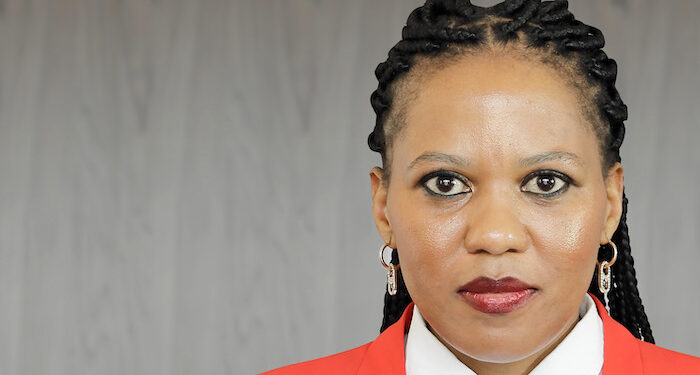MediaHeads 360 is deeply rooted in radio and the power it has to transform society. Part of the MediaHeads 360 journey is strengthening understanding, relationship and advocacy of the community radio sector.
Punctual, polite and present. Our 10am meeting started promptly, like a news bulletin on a mid-morning radio show. Before settling into conversation over a shot of ginger, warm lemon water, black coffee and half a slice of carrot cake, Shoeshoe Qhu greeted the staff at a local coffee shop as though they were good colleagues.
Her short conversation with the waiter was both pointed and warm. Clearly a regular at our chosen meeting place, she took the time to share introductions and listen to a quick personal update about the holidays. Her skills as a journalist were evident as she turned her attention to me, her phone already on silent.
In the 90 minutes we spent catching up on all thing’s media, her screen constantly glowed blue with what I assumed were calls, messages, and notifications. Despite the constant inflow of communication, she only once asked to check in with her PA regarding an urgent document that needed to be sent.
Throughout our meeting, she remained present and engaged, speaking with a sense of purpose and pride about her journey and her current role as the CEO of the Media Development and Diversity Agency (MDDA).
Imagination and responsibility
Born and raised in the mountainous village of Makuatlane, two hours from Matatiele in the Eastern Cape, Qhu’s childhood was shaped by strong, dynamic women who ran households and managed local economies while the men worked in mines across the reef.
“Growing up, I watched women make daily decisions for their families and communities,” she reflects. This foundation instilled in her an innate confidence and a belief in her own agency. Local news and information were shared at community gatherings in the form of essential knowledge and vivid stories.
Her early years in a deeply rural environment provided unlimited space for her imagination to flourish. A childhood chore as simple as collecting eggs taught her responsibility and self-reliance. And the vast, uninterrupted landscape allowed her to dream beyond her immediate surroundings.
“No one needed to affirm me; I knew who I was,” she states with conviction.
A chance encounter
With good grades in maths and science, Qhu’s father was adamant she should study a professional discipline and promptly enrolled her in an electrical engineering programme in Cape Town. As an introvert, she found expression in community theatre.
Travelling far and wide, the theatre group relied on goodwill to perform and survive. A single line in Sesotho in an otherwise isiXhosa play turned out to be Qhu’s catalyst to become a media professional.
“I stumbled into radio, but it quickly became a calling,” she recalls. It was the Cape Town community station, Radio Zibonele’s station manager who approached Qhu to become a Sesotho newsreader. It was also here that she spent her formative media years.
Her love for storytelling and her natural curiosity drove her deeper into the craft of journalism and media. From the occasional news bulletin on weekends, Qhu transitioned from being a volunteer to a content producer, five days a week.
It was at this point that she told her parents the engineering dream was over. Little did she know she would go on to become a respected media practitioner and inspirational leader. Her mantra as a young media professional centred around the ‘why;.
“I always asked the big ‘why’ questions,” she explains, “because understanding the ‘why’ is how we make sense of the world.”
The value of knowledge
Qhu spent time at the Wits Radio Academy and furthered her media studies at the institution. Her passion for understanding the transitioning media landscape gave her the opportunity to expand her skill set at the Radio Netherlands Training Centre in Hilversum.
Her enthusiasm made her a good teacher at the Academy, and she remains passionate about sharing knowledge, experience, and opportunities with young industry talent.
Her ability to grow others was first highlighted at the Voice of Wits, where she led the organisation as the station manager. She subsequently worked as a programme manager at Primedia and the SABC.
Qhu is an avid reader and also tunes into a variety of audio from around the world. She describes her thirst for knowledge as a “rabbit hole” and often finds herself researching topics as if she were still a journalist.
Building a career
Careers aren’t built in isolation, and her journey as a producer at Kaya FM and 702 taught her much about discipline and timing. She acknowledges the mentors and leaders who shaped her career and learning environments.
At Kaya FM, she admired the station’s commitment to celebrating black identity and culture, while at the SABC, she witnessed firsthand the complexities of public broadcasting. Primedia, on the other hand, showed her the intense commercial value of radio.
Reflecting on her professional experiences, Qhu notes, “I’ve worked with exceptional leaders who had the vision and tenacity to nurture talent. But there’s no denying that the media industry faces significant leadership gaps.”
This observation spurred her commitment to leading with integrity and purpose. Part of her personal plan includes building on the mentorship she already offers to young people and establishing a media leadership academy for aspiring female media talent.
Reflecting on her 20 years in media so far, she recalls a pivotal moment: “At one point, I realised I was no longer just reporting stories—I was shaping narratives. That realisation fuelled my desire to contribute to systemic change.”
Leading the MDDA
Qhu assumed the role of CEO at the MDDA amid considerable challenges. The agency, tasked with fostering media diversity and development in underserved communities, faced financial constraints, governance issues and stakeholder pressures. Yet, she embraced the opportunity to make a meaningful impact.
“Community media has the potential to bring everyone along,” Qhu asserts. “It’s the backbone of participatory democracy, giving voice to the voiceless and reflecting the diversity of our nation.”
Under the leadership and guidance of the board, she and the team at the MDDA have focused on empowering community radio and print outlets to dissect complex issues and make them accessible to local audiences.
One of Qhu’s key priorities has been advocating for sustainable funding for community media. She has seen too many outlets come and go and believes it is simply not viable for the MDDA to fund organisations that can’t be sustainable over time.
With this in mind, skills transfer and capacity building remain key. Her passion for this work is evident. “It’s not just about money,” she says. “It’s about creating an environment where community media can thrive, where voices are heard, and where democracy is truly participatory.”
Despite systemic challenges, Qhu’s leadership style is characterised by resilience and pragmatism. She has tackled issues head-on, insisting on transparency and accountability within the agency. Her insistence on proper procedures and ethical practices has occasionally made her a target for criticism, but she remains undeterred.
“I’m sold on the idea that we can do better for our country,” she says. “Even when it’s hard, I keep reminding myself why I started this journey.”
A pragmatic vision
Qhu’s journey is deeply intertwined with her vision for the future of media in South Africa. She believes that by institutionalising strong systems and fostering collaboration, community media can thrive. She also envisions a future where the government and private sector work together to address unemployment and other societal challenges through innovative media projects.
Qhu emphasises the importance of strategic thinking. “We need to stop reacting to crises and start building systems that last. It’s about continuity, not episodes,” she explains. “When we approach challenges with a long-term vision, real change becomes possible.”
Balancing work and life
Despite her demanding role, she remains grounded by her family and personal interests. Qhu speaks fondly of her seven brothers, two of whom live near her in Gauteng. She loves technology and the positive change it can bring to individuals and communities. She has a close group of friends and speaks with admiration for their professional work, enjoying social time with them.
To balance her love for carrot cake, you’ll find Qhu hitting the streets for a brisk walk or a leisurely trail on weekends.
Asked about her favourite radio station, Qhu remained diplomatic and coy. With a slight smile, she says, “You know I can’t answer that!”
Qhu finds balance by staying connected to her roots. “When things get overwhelming, I think about the women in my village,” she shares. “They faced challenges with grace and strength. They remind me that I can, too.”
Time spent with Shoeshoe Qhu is never wasted. I’m struck by her grasp of legislation, politics and economic complexities. She is confidently stylish and socially comfortable. Her greeting is always warm, and her smile comes from her core.
Her leadership style is intentional and thoughtful, and her actions are marked with perseverance and an unwavering commitment to making a difference. Qhuis grounded in principle yet remains personally ambitious.
Community media is in safe hands – holokile!













